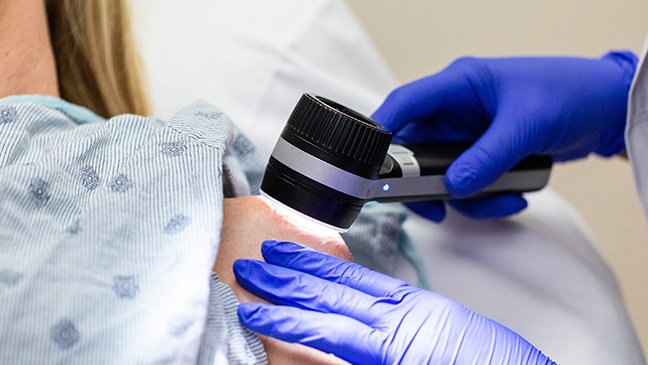- Diseases
- Acoustic Neuroma (14)
- Adrenal Gland Tumor (24)
- Anal Cancer (66)
- Anemia (2)
- Appendix Cancer (16)
- Bile Duct Cancer (28)
- Bladder Cancer (68)
- Brain Metastases (28)
- Brain Tumor (230)
- Breast Cancer (716)
- Breast Implant-Associated Anaplastic Large Cell Lymphoma (2)
- Cancer of Unknown Primary (4)
- Carcinoid Tumor (8)
- Cervical Cancer (154)
- Colon Cancer (164)
- Colorectal Cancer (110)
- Endocrine Tumor (4)
- Esophageal Cancer (42)
- Eye Cancer (36)
- Fallopian Tube Cancer (6)
- Germ Cell Tumor (4)
- Gestational Trophoblastic Disease (2)
- Head and Neck Cancer (6)
- Kidney Cancer (124)
- Leukemia (344)
- Liver Cancer (50)
- Lung Cancer (288)
- Lymphoma (284)
- Mesothelioma (14)
- Metastasis (30)
- Multiple Myeloma (98)
- Myelodysplastic Syndrome (60)
- Myeloproliferative Neoplasm (4)
- Neuroendocrine Tumors (16)
- Oral Cancer (100)
- Ovarian Cancer (170)
- Pancreatic Cancer (166)
- Parathyroid Disease (2)
- Penile Cancer (14)
- Pituitary Tumor (6)
- Prostate Cancer (144)
- Rectal Cancer (58)
- Renal Medullary Carcinoma (6)
- Salivary Gland Cancer (14)
- Sarcoma (236)
- Skin Cancer (294)
- Skull Base Tumors (56)
- Spinal Tumor (12)
- Stomach Cancer (60)
- Testicular Cancer (28)
- Throat Cancer (90)
- Thymoma (6)
- Thyroid Cancer (98)
- Tonsil Cancer (30)
- Uterine Cancer (78)
- Vaginal Cancer (14)
- Vulvar Cancer (18)
- Cancer Topic
- Adolescent and Young Adult Cancer Issues (20)
- Advance Care Planning (10)
- Biostatistics (2)
- Blood Donation (18)
- Bone Health (8)
- COVID-19 (362)
- Cancer Recurrence (120)
- Childhood Cancer Issues (120)
- Clinical Trials (624)
- Complementary Integrative Medicine (24)
- Cytogenetics (2)
- DNA Methylation (4)
- Diagnosis (230)
- Epigenetics (6)
- Fertility (62)
- Follow-up Guidelines (2)
- Health Disparities (14)
- Hereditary Cancer Syndromes (122)
- Immunology (18)
- Li-Fraumeni Syndrome (8)
- Mental Health (118)
- Molecular Diagnostics (8)
- Pain Management (62)
- Palliative Care (8)
- Pathology (10)
- Physical Therapy (18)
- Pregnancy (18)
- Prevention (892)
- Research (390)
- Second Opinion (74)
- Sexuality (16)
- Side Effects (604)
- Sleep Disorders (10)
- Stem Cell Transplantation Cellular Therapy (216)
- Support (404)
- Survivorship (322)
- Symptoms (184)
- Treatment (1772)
Medical physicist: Why I get my cancer screenings at MD Anderson
4 minute read | Published February 22, 2022
Medically Reviewed | Last reviewed by an MD Anderson Cancer Center medical professional on February 22, 2022
I’ve never been diagnosed with cancer, but I still get screened at MD Anderson for both breast cancer and skin cancer every year. And I tell everyone I know to do the same.
One reason is that cancer runs in my family. At least five of my relatives have been diagnosed with some type of cancer in the last 15 years.
The second reason is that I have a number of personal risk factors. I’m very fair-skinned and had several severe sunburns as a child.
The third reason is that I work at MD Anderson as a medical physicist in the division of Radiation Oncology. My job is to make sure that radiation therapy is delivered appropriately to our patients. And while my efforts have shifted more toward research now, I did spend several years as a part of our radiation therapy team for breast cancer patients. So, I saw first-hand the difference that early detection can make, both in my patients and among my own family members.
Why I started getting my own skin checked annually
I began getting annual skin checks after my father was diagnosed with a type of skin cancer called squamous cell carcinoma. It was on his lower lip and fairly advanced, so he had a very intense course of radiation therapy to treat it. That kept the cancer at bay for a little while. Unfortunately, it returned a few years later, and required surgery to remove several lymph nodes in his neck and chest, followed by another high-dose course of radiation therapy.
As a result, my father has experienced several treatment-related side effects, including dental cavities, loss of taste, and dry mouth. These have significantly impacted his quality of life. And while both he and my family are obviously happy and very grateful he’s still around to be with us, it’s hard not to think about how different things might be today if his cancer had been diagnosed earlier, when it would’ve required less aggressive treatment.
It’s also really difficult knowing that many of the issues he’s dealing with now — including difficulty chewing, swallowing, eating, and generating saliva — are related not to treatment for an oral cancer or even a throat cancer, but to a skin cancer that has its own prevention protocol.
Why I’ll keep getting my cancer screenings at MD Anderson
I plan to continue getting my screenings at MD Anderson — primarily because it’s the only place I would even consider being treated.
I strongly believe that we are the best place in the world in terms of cancer diagnosis and treatment. So, why would I go someplace different for my screenings? To me, it just makes more sense to have continuity of care. Our cancer prevention and screening teams, including our highly specialized radiologists and pathologists, are exceptional. And our surgical oncology, medical oncology, and radiation oncology teams have unparalleled expertise.
Another way I’m managing my risk factors
I’m also planning to pursue more genetic testing. I want to better understand my risk factors by seeing if I carry any inheritable mutations that might make me more likely to develop certain cancers.
I had genetic testing done more than a decade ago to look for the BRCA mutation, after several relatives were diagnosed with breast cancer. Those results came back negative. But many other markers have since been identified, so I plan to talk with my primary care physician at my next checkup to see if it makes sense to run a new test panel.
Why early detection is so important
So far, I haven’t had anything really worrisome crop up during a mammogram, though I do have very dense breast tissue. That can make it challenging to get clear images, so I have to have an ultrasound-guided biopsy occasionally. And last year, I needed a breast MRI as well as a mammogram.
With skin checks, I haven’t been as lucky. This year, I had to have a precancerous lesion frozen off of my forehead. And last year, I had a larger lesion on my neck that went deep enough to require a minor in-office surgery to remove it completely. Fortunately, the biopsy from that procedure was negative.
Still, I’m very aware that both of these procedures are inconsequential compared to what my dad went through. That’s why genetic marker or no genetic marker, I’m never skipping a cancer screening. Because I know that any cancer detected early is by definition easier to treat. And if you detect skin cancer early enough, its removal is just an office procedure.
Rebecca Howell, Ph.D., is director of Radiation Dosimetry Service and the Late Effects Research Group.
Request an appointment at MD Anderson online or by calling 1-855-946-3759.

If you detect skin cancer early enough, its removal is just an office procedure.
Rebecca Howell, Ph.D.
Researcher





